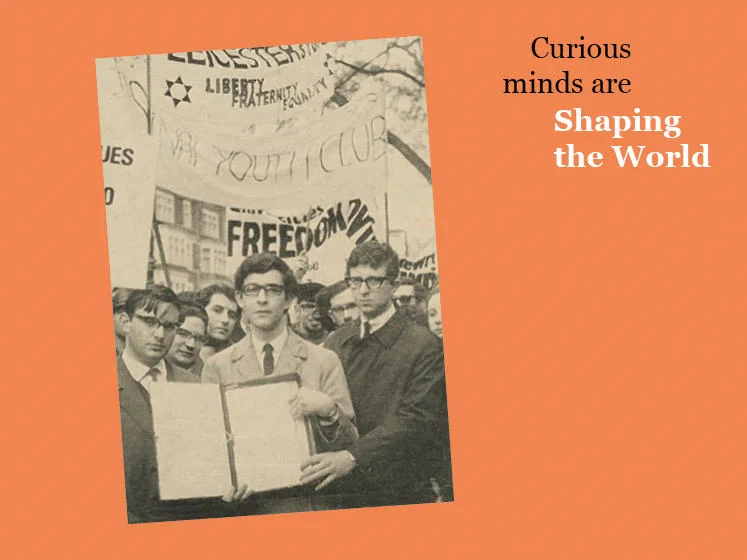Allan Segal
BSc Economics 1963 & MSc Government 1966

Allan Segal (1941-2012) was a BAFTA-winning documentary filmmaker, part of a new generation of producers who introduced a fresh era of investigative journalism to British television. During his time at LSE, he quickly gained a reputation as a firebrand and won the Beveridge Trophy for political debating twice. One of his first appearances on TV was on the first series of University Challenge as part of LSE’s team in 1962. Active in student politics, he is pictured in The Beaver on 12 May 1966 at a demonstration holding a petition complaining about the Soviet oppression of Jews.
After graduating, he worked on the BBC Horizon series producing and directing 12 one-hour programmes and in 1972, he started working as a producer for the investigative current affairs programme, World in Action. Segal directed and produced over 20 films over the next five years. His work for the programme took him into hostile situations all over the world where he had to use hidden cameras to film undercover.
Segal first used amateur 8mm cameras to create "Calculated Risk" in 1976 which focused on the story of Natan Sharansky’s campaign to leave Brezhnev’s Russia for Israel. Both him and the filming crew risked life imprisonment posing as tourists to capture this on film. They also had to smuggle hundreds of two-minute film reels out of Russia.
In 1978, he won his first BAFTA for Made in Korea which explored how traditional British industries were being undercut by competitors in South-East Asia. The following year, he became the editor of World in Action where he oversaw the broadcast of the controversial The Steel Papers programme. This led to a legal battle in the House of Lords that almost led to his and several other Granada Television directors’ imprisonments as they refused to reveal the source of a confidential document.
During the 1980s, he produced documentaries on apartheid in South Africa which won him the Broadcasting Press Guild’s Best Documentary series in 1986. His greatest international success came in the 1990s with the documentary series Dinosaur which remains one of the highest rated documentary series of all time. In his later life, he served as a dedicated local magistrate until retiring at the age of 70.